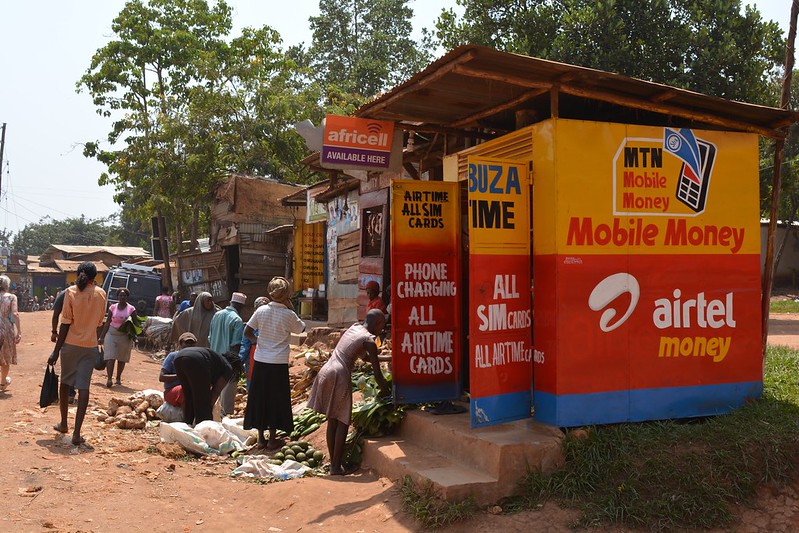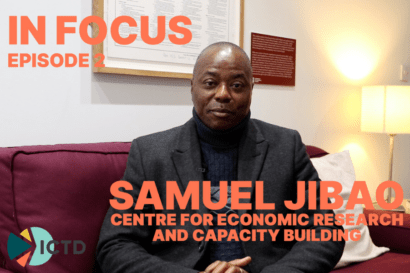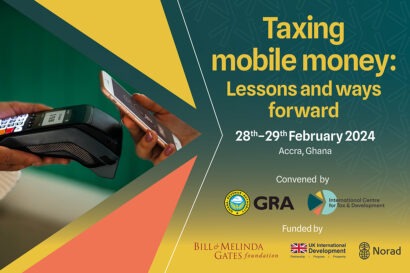Background
The rapid expansion of mobile money and broader digital financial services (DFS) as well as the increased relevance of digital IDs across Africa and other low-income countries over the past decade gives rise to two new important challenges for tax systems.
First, resource-constrained governments may see the expansion of DFS as an opportunity to tax these new services. The extent and form of that taxation is likely to have important implications for the adoption of these new technologies by individuals, for the development of DFS markets, and for the broader goal of financial inclusion.
Second, the expansion of DFS and digital IDs has the potential to provide governments with access to extensive new data with which to improve tax administration. However, considerable hurdles remain in the administrative and technological capacity of revenue authorities in attempting to fulfil this potential.
The DIGITAX research programme
Despite these significant challenges and opportunities, very little rigorous research has been conducted in this area so far. The ICTD’s new DIGITAX research programme is funded by the Bill & Melinda Gates Foundation. DIGITAX aims to generate knowledge and evidence in order to support governments in (i) designing appropriate and effective taxation of DFS and DFS providers, and (ii) harnessing the potential for DFS and digital IDs to strengthen tax administration.
We particularly encourage research in two specific areas:
(1) The taxation of digital financial services
Rigorous research is needed to understand how governments can design appropriate taxation of mobile money, money transfers and other DFS (such as insurance, savings and pension products), striking a balance between the goals of revenue collection, long-term market development, and equity for taxpayers. We welcome proposals addressing the following questions:
- What is the impact of mobile money taxes on market development: agent networks, mobile phone ownership, etc.?
- Are there differential consumer reactions to mobile money provider price increases with respect to tax increases on mobile money transactions?
- How to best design sector-specific taxation of mobile network operators (MNOs) – in the context of already existing taxes and fees -, and how would this differ from taxing mobile money transactions?
- What are the connections between taxing the digital economy and taxing DFS, and what are the implications?
- How to approach taxation of insurance, long terms savings, and other DFS like remittances?
(2) Leveraging DFS and digital IDs for improved tax collection
Research is also needed on the potential of DFS (i.e. merchant payments, E-commerce, tax payment digitalisation, etc.) and digital IDs in improving the way in which tax administrations operate by expanding access to new data and streamlining internal processes
- What is the potential impact of accessing data from national digital ID databases and integrating this into tax administration processes? How might this affect efficiency and taxpayers compliance?
- What is the impact of incentives for taxpayers to adopt digital payment channels, both for performing business transactions and for person-to-government transactions (tax payments)?
- How are DFS-enabled solutions, such as digital payment of taxes and digital merchant payments increasing the efficiency of tax administrations?
- How can revenue authorities tap into data from DFS providers to better identify and monitor taxpayers?
- What are the legal implications of revenue authorities accessing and using third party data, such as data from DFS providers and digital ID databases, in terms of data privacy and consumer protection?
Submit a proposal
We are interested in proposals for research in lower-income countries across Africa and Asia. Research from middle-income countries may also be considered if it focuses on particularly innovative policies or technologies from which low-income countries can learn useful lessons. We particularly value proposals from low-income country researchers or teams that include joint efforts between Northern and Southern researchers.
The deadline for submitting a proposal is February 28th, as we aim to fund research that can be completed in 2022. At the same time, we are open to longer-term projects. Research grants can be small or large based on the scale of the project and the research methodology proposed, but proposals must be clear about the specific research questions to be answered and the objectives and scope of the project. Research grants can cover researcher fees as well as costs directly related to the research.
Please submit your initial brief proposal via this form (selecting DIGITAX as the research theme).
Please send any queries relating to this call to the DIGITAX Research Lead Fabrizio Santoro at [email protected].



